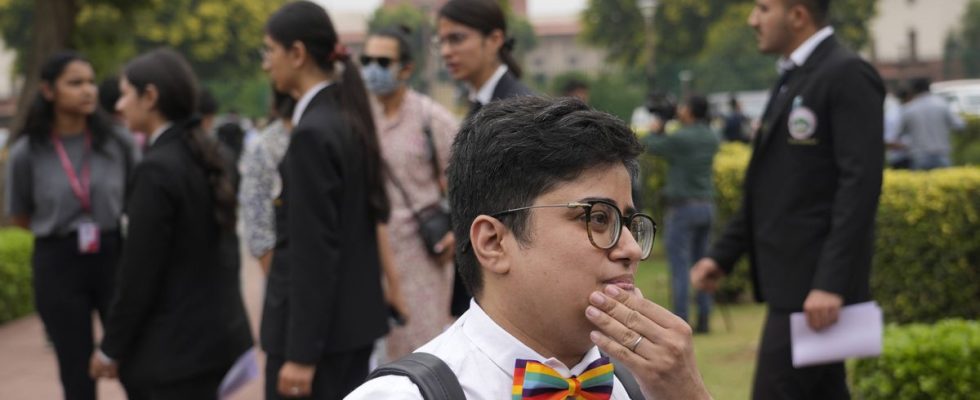India’s Supreme Court ruled on Tuesday that it does not have the authority to legalize same-sex marriage. “It is the domain of Parliament and state legislative bodies to decide on the law on marriage,” ruled the president of the highest court of the country, DY Chandrachud. The Court’s judgment noted that the right to marriage for all is not currently guaranteed by the Constitution. The magistrate, however, stressed that India had a duty to grant a form of recognition to relationships between people of the same sex, and to protect them against any form of discrimination.
Five years after the decriminalization of homosexuality in the country by the highest judicial institution, around twenty people and their lawyers obtained in April that the question of gay marriage be examined by the Court. The petitioners argued that India should treat the LGBT+ community as equal citizens under its Constitution.
On Tuesday, disappointment was seen on the faces of people who gathered outside the court in New Delhi with the hope that India would become the largest country in the world to recognize gay marriage. In Asia, only Taiwan recognizes gay marriage. “We are not satisfied with what the court said,” Siddhant Kumar, 27, testified to AFP. “We have been fighting for legal recognition for years,” he added. “We must stay strong and continue our fight. » Legalization of gay marriage would have notably allowed the LGBT+ community better access to adoption, insurance and even inheritance, the signatories of the request underlined.
The Court rules in favor of the far-right government
But Prime Minister Narendra Modi’s Hindu nationalist government strongly opposed it and said any changes to the law were a matter for Parliament and not the courts, a line ultimately followed by the Supreme Court. “Any interference in this area […] would completely disrupt the delicate balance of the country’s personal laws and accepted societal values,” the government said in a brief to the court. “Living together as partners and having same-sex sexual relations […] is not comparable to the concept of the Indian family unit, consisting of a husband, wife and children,” he added.
The Supreme Court on Tuesday authorized the recognition of marriage for couples where one member is transgender, on the condition that they are respectively identified as a “man” and a “woman”.
In 2018, a landmark ruling struck down a colonial-era law that banned same-sex sexual relations, and last year the court ruled that unmarried partners or same-sex couples had the right to to social benefits. “Our capacity to feel love and affection for each other makes us human beings,” noted Justice DY Chandrachud. “This court recognized that equality requires that same-sex unions and gay people not be discriminated against. »

